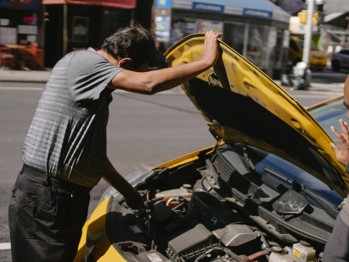10 Common Vehicle Issues Faced by Motorists

Cars are an essential part of our daily lives, and we rely on them to get us from one place to another. However, like any other machine, cars can develop problems over time. Here is a list of 10 of the most common car problems motorists can face, along with some tips on how to spot the warning signs and address the issues before they become more serious or costly to resolve:
- Squeaking brakes: Squeaking brakes are a common problem. If you hear a squeak when braking, it could be due to issues with brake pads and rotors, or callipers and frames. Faulty brakes are a serious car issue, so have your brakes checked by a professional as soon as possible if you notice anything unusual.
- Suspension issues: Another common car issue can be linked to the vehicle’s suspension. If you’ve noticed your car ride is bumpier than usual, it might be an issue with your shock absorbers or springs. Your shocks are responsible for ensuring smooth rides, reliable vehicle handling, and longer tyre life. If they wear out, you might notice a loss of vehicle control and general drivability issues. If it takes longer to stop, or you notice uneven tyre wear, get it checked. Fixing your suspension earlier could save you from a serious car issue like the suspension system collapsing.
- Ignition system problems: The ignition system includes the car’s battery, starter, and ignition button or key assembly on the steering column or dashboard. If any of those components aren’t in ship shape, the engine won’t turn over, or you’ll be at risk of engine failure while you’re driving, which you can problem guess isn’t a cheap car problem to fix.
- Flat or damaged tyres: Most motorists know that you need well-inflated tyres with good treads that are suited to the season and weather. Without those basics, you can degrade steering control and sacrifice fuel efficiency. That’s why it’s essential to get your tyres looked at whenever you run over a sharp object like a chunk of broken glass. Tyres can last for five or more years if they are well looked after, so if you spot any issues, then you’re better off heading straight to the garage. If you notice a leak or the tyres look worn out, don’t wait; get them patched or replaced as soon as possible.
- Alternator failure: The alternator is responsible for charging the battery and powering the electrical system when the engine is running. If the alternator fails, the battery will eventually die, and the car will stop running. If you notice any issues with your car’s electrical system, such as dimming headlights or a weak battery, have your alternator looked at by a professional.
- Low oil levels: Cars need oil to lubricate the engine and keep it running smoothly. If your car is low on oil, it can cause serious damage to the engine. If you notice any issues with your car’s oil levels, such as the oil light coming on or strange noises coming from the engine, get your oil levels checked.
- Steering wheel issues: If you notice any issues with your car’s steering, such as difficulty turning the wheel or a shaking steering wheel, take it to a professional to be checked. Steering issues can be caused by various problems, including worn-out steering components, damaged tyres, or alignment issues.
- Leaking radiator: The radiator is responsible for keeping the engine cool. If the radiator leaks, the engine can overheat, which can cause serious damage. If you notice any issues with your car’s cooling system, such as the temperature gauge rising or steam coming from under the hood, have your radiator looked at by a professional.
- Faulty fuel injectors: Fuel injectors are responsible for delivering fuel to the engine. If they become clogged or damaged, they can cause a range of issues, including poor fuel economy, rough idling, and engine misfires. If you notice any issues with your car’s fuel system, have your fuel injectors checked professionally.
- Dead battery: A dead battery is a common car problem in the UK. If your car won’t start, it could be due to a dead battery. Batteries can die for various reasons, including age, extreme temperatures, and leaving the lights on. If you notice any issues with your car’s battery, such as dimming headlights or a slow engine crank, take your vehicle to a mechanic to see if it needs replacing.
As you have probably gathered, the general rule of thumb for avoiding issues progressing into safety concerns or requiring costly repairs is, if you notice anything out of the ordinary with your car, have it checked by a professional as soon as possible to avoid more serious problems down the road.
Back

